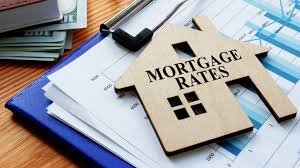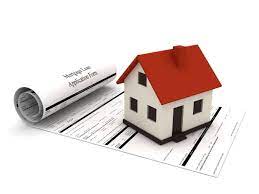Types Of Mortgage Loans
In the labyrinth of real estate financing, understanding the various types of mortgage loans is paramount. Whether you’re a first-time homebuyer or a seasoned property investor, choosing the right mortgage can significantly impact your financial stability. In this comprehensive guide, we’ll delve into the diverse world of mortgage loans, shedding light on the different options available to borrowers.
- Fixed-Rate Mortgages: A Steady Ship in a Sea of Fluctuations
Fixed-rate mortgages are the bedrock of home financing. With a fixed interest rate for the entire loan term, borrowers enjoy stability in monthly payments. This type of mortgage is ideal for those who prefer predictability in their budget and want to shield themselves from market fluctuations. It provides a sense of security, as the interest rate and monthly payments remain constant throughout the life of the loan.
- Adjustable-Rate Mortgages (ARMs): Navigating the Ebb and Flow
Contrary to fixed-rate mortgages, ARMs come with interest rates that may change periodically. Typically, they start with a fixed rate for an initial period (e.g., 5, 7, or 10 years) and then adjust based on market conditions. While ARMs often offer lower initial interest rates, they come with the risk of potential rate increases in the future. This option is suitable for those who anticipate changes in their financial situation or plan to relocate before the adjustable period begins.
- FHA Loans: Opening Doors for First-Time Homebuyers
Backed by the Federal Housing Administration, FHA loans are designed to make homeownership more accessible, especially for first-time buyers. With lower down payment requirements and more lenient credit score standards, FHA loans cater to individuals who may not qualify for conventional mortgages. Understanding the nuances of FHA loans is crucial for those seeking affordable entry into the real estate market.
- VA Loans: Serving Those Who Served
For eligible veterans, active-duty service members, and surviving spouses, VA loans offer a pathway to homeownership with compelling benefits. These government-backed loans often feature competitive interest rates, zero down payment requirements, and reduced closing costs. Unpacking the intricacies of VA loans is essential for those who have served in the military and are exploring their housing options.
- USDA Loans: Cultivating Homeownership in Rural Areas
The United States Department of Agriculture (USDA) provides loans aimed at promoting homeownership in rural and suburban areas. USDA loans offer low-interest rates and require no down payment, making them an attractive option for individuals seeking homes in designated rural zones. Delving into the specific eligibility criteria and benefits of USDA loans is vital for those considering this unique financing option.
- Jumbo Loans: Reaching New Heights in Real Estate
When standard loan limits prove insufficient for high-priced properties, jumbo loans step in to fill the gap. Tailored for luxury real estate, these loans exceed the conventional conforming loan limits. However, securing a jumbo loan involves meeting stringent credit and income requirements. Unraveling the complexities of jumbo loans is crucial for those eyeing properties with hefty price tags.
- Interest-Only Mortgages: Balancing Act or Financial Pitfall?
Interest-only mortgages allow borrowers to pay only the interest on the loan for a specified period, typically the first few years. While this option provides lower initial monthly payments, it comes with the caveat that the principal balance does not decrease during the interest-only period. Navigating the potential risks and rewards of interest-only mortgages is essential for borrowers seeking short-term financial relief.
Conclusion:
In the vast landscape of mortgage loans, finding the right fit requires careful consideration of personal circumstances, financial goals, and risk tolerance. Armed with knowledge about the various types of mortgage loans, borrowers can navigate the real estate market with confidence and make informed decisions that align with their long-term objectives. Whether opting for stability with a fixed-rate mortgage or exploring government-backed loans for enhanced affordability, the key lies in understanding the nuances of each option and choosing the path that leads to sustainable homeownership.


